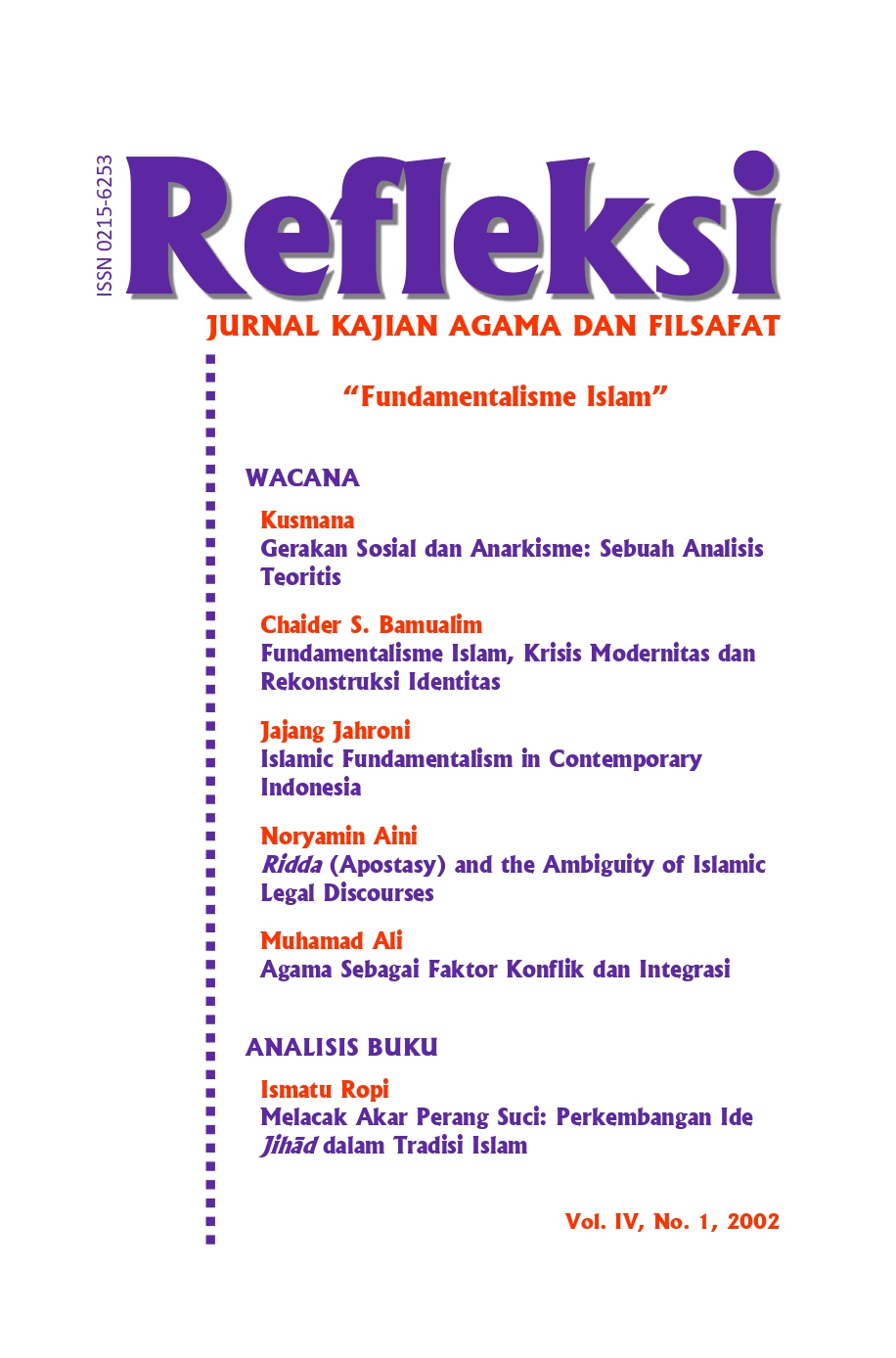Islamic Fundamentalism in Contemporary Indonesia
DOI:
https://doi.org/10.15408/ref.v4i1.44769Keywords:
Islamic Fundamentalism, Wahhabism, Salafism, Modernization, Secularization, Political Islam, Millenarianism, Indonesia.Abstract
Islamic fundamentalism in contemporary Indonesia has historical and ideological roots tracing back to the Wahhabi movement in Saudi Arabia, which emerged in the late nineteenth century. This movement, influenced by the ideas of Ibn Taymiyya and the Hanbali school, advocates a strict return to the Qur’an and Sunnah. Historically, fundamentalist ideologies have been reinforced by socio-political factors, including the colonial subjugation of Muslim nations and subsequent struggles with authoritarian regimes. The rise of modernization and secularization in the 20th century further fueled fundamentalist movements, as many Muslims perceived modernity as a threat to their religious identity. The emergence of Islamic fundamentalism is often accompanied by millenarian beliefs, which foresee the periodic revival of Islam by reformers. This ideology has contributed to various radical movements throughout history, including in Indonesia. Fundamentally, Islamic fundamentalism seeks to purify the faith by rejecting heterodox beliefs and influences deemed foreign to Islam. It emphasizes the emulation of the early generations of Muslims (al-salaf al-ṣāliḥ) and adherence to sharī‘a as the foundation of a true Islamic society. This paper examines the historical, ideological, and socio-political factors that have shaped Islamic fundamentalism in Indonesia, highlighting its responses to modernization, secularization, and perceived threats to Islamic identity.References
Arjomand, Said Amir. “Unity and Diversity in Islamic Fundamentalism,” in Martin E. Marty and R. Scott Appleby (eds.), Fundamentalisms Comprehended. Chicago and London: The University of Chicago Press, 1995.
Al-Chaidar, Sepak Terjang KW 9 Abu Toto Sheikh A.S. Panji Gumilang Menyelewengkan NKA-NII Pasca S.M. Kartosuwirjo. Jakarta: Madani Press, 2000.
Castells, Manuel. The Power of identity. Massachusetts: Blackwell Publishers, 1997.
Enayat, Hamid. Modern Islamic Political Thought, Austin: University of Texas, 1982.
Hoffman, Valerie J. “Muslim Fundamentalists: Psychological Profiles,” in in Martin E. Marty and R. Scott Appleby (eds.), Fundamentalisms Comprehended.
Sivan, Emmanuel. “The Enclave Culture”, in Martin E. Marty and R. Scott Appleby feds.), Fundamentalisms Comprehended.
Ustadz Misbahul Anam, former Secretary General of the FPI, August, 2000.








